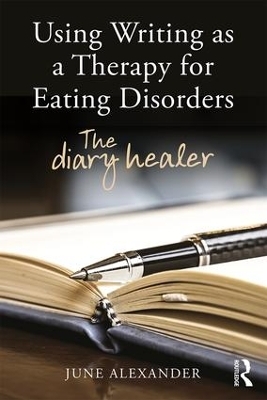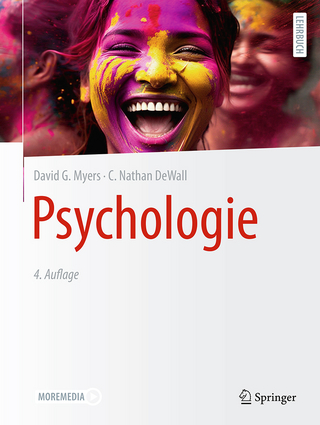
Using Writing as a Therapy for Eating Disorders
Routledge (Verlag)
978-1-138-78837-4 (ISBN)
The book focuses on the power of diary writing, which may serve as a survival tool but become an unintended foe. With guidance, patients who struggle with face-to-face therapy are able to reveal their thoughts through writing and construct a strong sense of self. The effects of family background and the environment are explored, and the therapeutic value of sharing diaries, to better understand illness symptoms and behaviours, is discussed.
Using Writing as a Therapy for Eating Disorders will be of interest to those who have recovered or are recovering from eating disorders or any mental illness, as well as therapists, clinicians and others working in the medical and healthcare professions.
June Alexander developed anorexia nervosa at 11, where writing and her diary became a survival tool. She has worked as a journalist and written seven books about eating disorders. Titles include memoir A Girl Called Tim; My Kid is Back; A Collaborative Approach to Eating Disorders; Anorexia Nervosa: A Recovery Guide for Sufferers, Families and Friends; and Getting Better Bite by Bite. She also has a blog on her website at www.junealexander.com. June is the recipient of the 2016 Meehan-Hartley Award for Public Service and Advocacy from The Academy of Eating Disorders.
PART 1: WRITING FOR SELF Introductions: June Alexander Foreword: Michael Levine/Gillie Bolton 1. Why Write a Diary? 2. Choosing a Diary 3. Creating a Friend 4. The Role of Secrets – How the Diary Can Dupe You 5. Navigating the Minefield of Abuse 6. Getting to Know You (Me) 7. Reflecting and Connecting with Self 8. Healing the Self, the Patient 9. Learning About Self through the Stories of Others 10. The Many Marks of Stigma 11. Early Signs and Symptoms 12. Recovery 13. How the Diary Helps Us to Move On PART 2: WRITING FOR THERAPY 14. The Connector 15. Look For Me In Poetry 16. Developing Trust for Today and Tomorrow 17. The Family and Healing 18. A Translator and Informant 19. The Internet as a Diary Medium 20. Newer Forms of Face-to-Face and Online Support 21. Sharing Stories in Online Communities 22. The Diary’s Role in Behavioural Health Technology 23. How Will the Story in Your Diary Play Out? 24. Using Your Diary to Create a Narrative for Others 25. A Participant and Observer of Your Own Life Resource Listing Afterword: Cynthia Bulik
| Erscheint lt. Verlag | 18.7.2016 |
|---|---|
| Verlagsort | London |
| Sprache | englisch |
| Maße | 156 x 234 mm |
| Gewicht | 510 g |
| Themenwelt | Geisteswissenschaften ► Psychologie ► Klinische Psychologie |
| Medizin / Pharmazie ► Medizinische Fachgebiete ► Psychosomatik | |
| Medizin / Pharmazie ► Medizinische Fachgebiete ► Psychiatrie / Psychotherapie | |
| ISBN-10 | 1-138-78837-6 / 1138788376 |
| ISBN-13 | 978-1-138-78837-4 / 9781138788374 |
| Zustand | Neuware |
| Haben Sie eine Frage zum Produkt? |
aus dem Bereich


